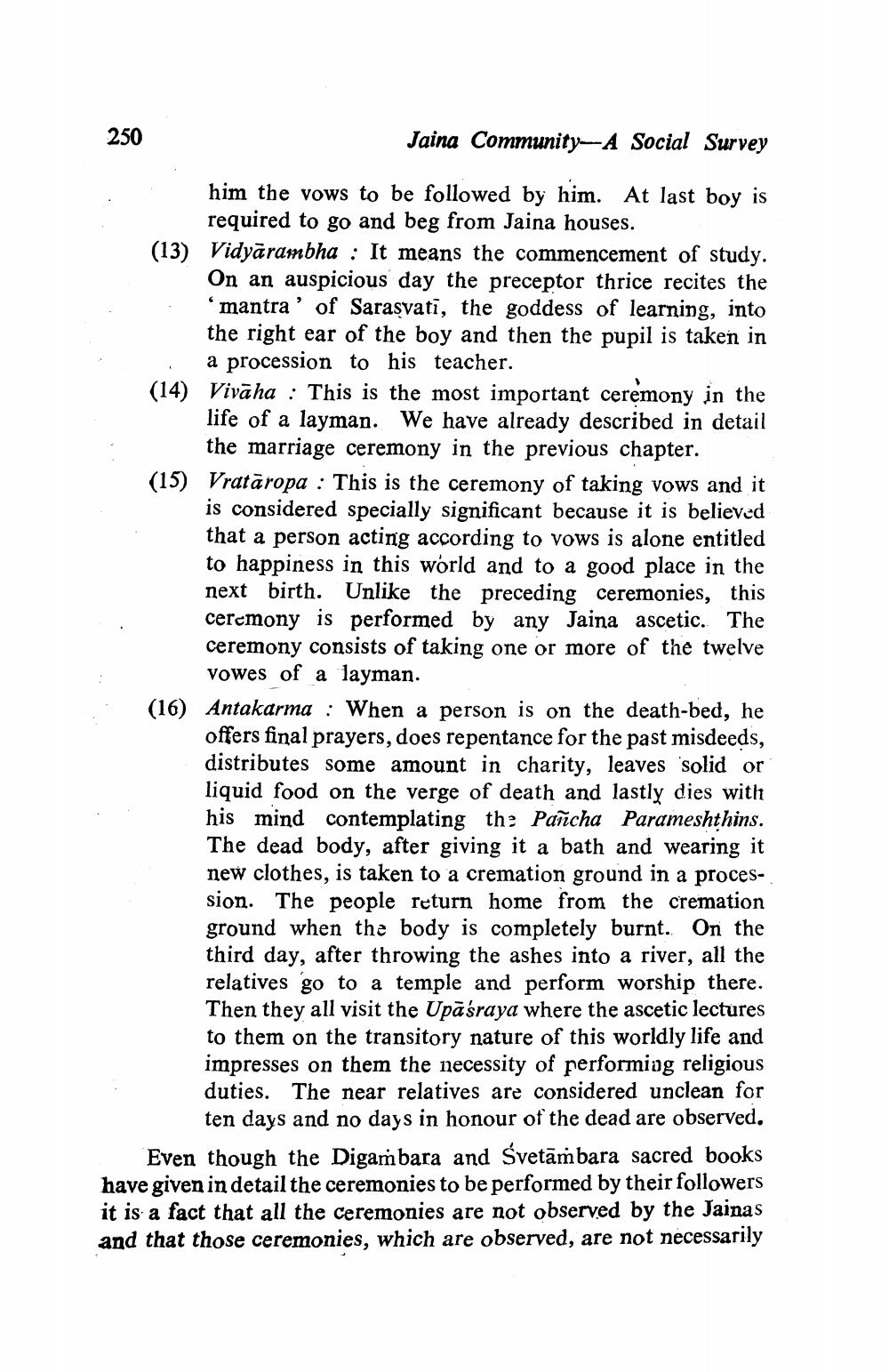________________
250
Jaina Community- A Social Survey
him the vows to be followed by him. At last boy is
required to go and beg from Jaina houses. (13) Vidyārambha : It means the commencement of study.
On an auspicious day the preceptor thrice recites the
mantra' of Sarasvati, the goddess of learning, into the right ear of the boy and then the pupil is taken in
a procession to his teacher. (14) Vivāha : This is the most important ceremony in the
life of a layman. We have already described in detail
the marriage ceremony in the previous chapter. (15) Vratāropa : This is the ceremony of taking vows and it
is considered specially significant because it is believed that a person acting according to vows is alone entitled to happiness in this world and to a good place in the next birth. Unlike the preceding ceremonies, this ceremony is performed by any Jaina ascetic. The ceremony consists of taking one or more of the twelve
vowes of a layman. (16) Antakarma : When a person is on the death-bed, he
offers final prayers, does repentance for the past misdeeds, distributes some amount in charity, leaves solid or liquid food on the verge of death and lastly dies with his mind contemplating the Pañcha Parameshthins. The dead body, after giving it a bath and wearing it new clothes, is taken to a cremation ground in a procession. The people return home from the cremation ground when the body is completely burnt. On the third day, after throwing the ashes into a river, all the relatives go to a temple and perform worship there. Then they all visit the Upāśraya where the ascetic lectures to them on the transitory nature of this worldly life and impresses on them the necessity of performing religious duties. The near relatives are considered unclean for
ten days and no days in honour of the dead are observed, Even though the Digambara and Śvetāmbara sacred books have given in detail the ceremonies to be performed by their followers it is a fact that all the ceremonies are not observed by the Jainas and that those ceremonies, which are observed, are not necessarily




